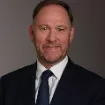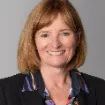- within Law Department Performance topic(s)
- in United Kingdom
- within Law Department Performance, Coronavirus (COVID-19) and Environment topic(s)
Tell us about your career highlights to date?
After studying at Université Panthéon-Assas (Paris II), I was admitted to the Paris Bar in 2006. I began my career with leading international firms in Paris, including Willkie Farr & Gallagher and Gibson Dunn & Crutcher, focusing on mergers and acquisitions and private equity transactions.
I then moved back to Algeria, where I practised with a French law firm Gide Loyrette Nouel and later became a partner at another French firm, LPA-CGR in Algiers. In 2022, I established Loucif + Co, a practice dedicated to supporting international and domestic clients in cross-border mergers and acquisitions, joint ventures, and energy-related matters.
Over the past decade, I have built particular expertise in the energy sector – covering oil and gas, renewables, and large-scale infrastructure projects. My work encompasses both transactional and regulatory aspects, and I frequently advise leading global companies on structuring and implementing their investments in Algeria. I also contribute as an expert to the OECD in the framework of the EU-OECD Programme on Promoting Investment in the Mediterranean, which seeks to strengthen investment flows in the region.
What are you most excited about for the remaining months of 2025 and what are your goals in the coming months?
A major development is Algeria's new mining law. The new mining law is intended to attract international investors and unlock the country's significant mineral potential. I am particularly eager to contribute to this process, both by advising clients on opportunities arising from the new framework and by helping shape responsible investment strategies.
As for the firm, my main goal is to continue growing Loucif + Co. I want to consolidate our position as a trusted local counsel for international law firms and expand our capacity to handle more complex projects. Strengthening our team, investing in training and deepening sectoral expertise are key objectives for the coming months.
Talk to us about the complexities in your field of work and how you navigate challenges that arise when doing business in Algeria?
Algeria, with its 2.4 million square kilometres and a population of 44 million, stands as one of Africa's largest economies. The country's wealth in natural resources, particularly hydrocarbons, has long shaped its economic trajectory. Recent geopolitical and energy market developments have boosted Algeria's revenues, but have also reinforced the need to diversify the economy and attract broader foreign investment.
The complexities often lie in navigating a regulatory environment that is both evolving and complex. Over the past five years, Algeria has introduced significant reforms: a new Investment Law in 2022 that removed the 49% cap on foreign equity in most sectors, a revised Hydrocarbons Law in 2019 offering more competitive terms, a new Mining Law removing the 49/51% rule opening up the sector to foreign investors, and sector-specific regulations in pharmaceuticals and renewables.
In practice, doing business in Algeria requires an ability to reconcile legal analysis with local realities. Understanding how institutions operate on the ground, how reforms are implemented, and how local content obligations are applied is as important as mastering the legislation itself. My approach is to provide clear, pragmatic advice that bridges these two dimensions, helping investors anticipate risks and adapt to the Algerian business environment.
What is the best and most honest advice ever given to you?
"Build your own path, but never compromise on integrity."
This advice, given to me early in my career, has guided my choices – whether working for major international law firms in Paris, or founding my own practice in Algiers. In a complex and sometimes unpredictable environment, integrity and consistency are the most valuable assets for building trust with clients, peers and institutions.
Who are your dream dinner guests and why?
- Amal Clooney – for her inspiring career as an international lawyer and advocate for human rights, showing how legal expertise can be a powerful tool for change.
- Christine Lagarde – for her leadership in global financial institutions and her ability to navigate male-dominated environments with intelligence and elegance.
- Assia Djebar – the late Algerian novelist and intellectual, to honour her vision of women's voices in Algerian history and culture.
- Elon Musk – not for his persona, but for a conversation on how technological innovation can intersect with Africa's development.
The content of this article is intended to provide a general guide to the subject matter. Specialist advice should be sought about your specific circumstances.




